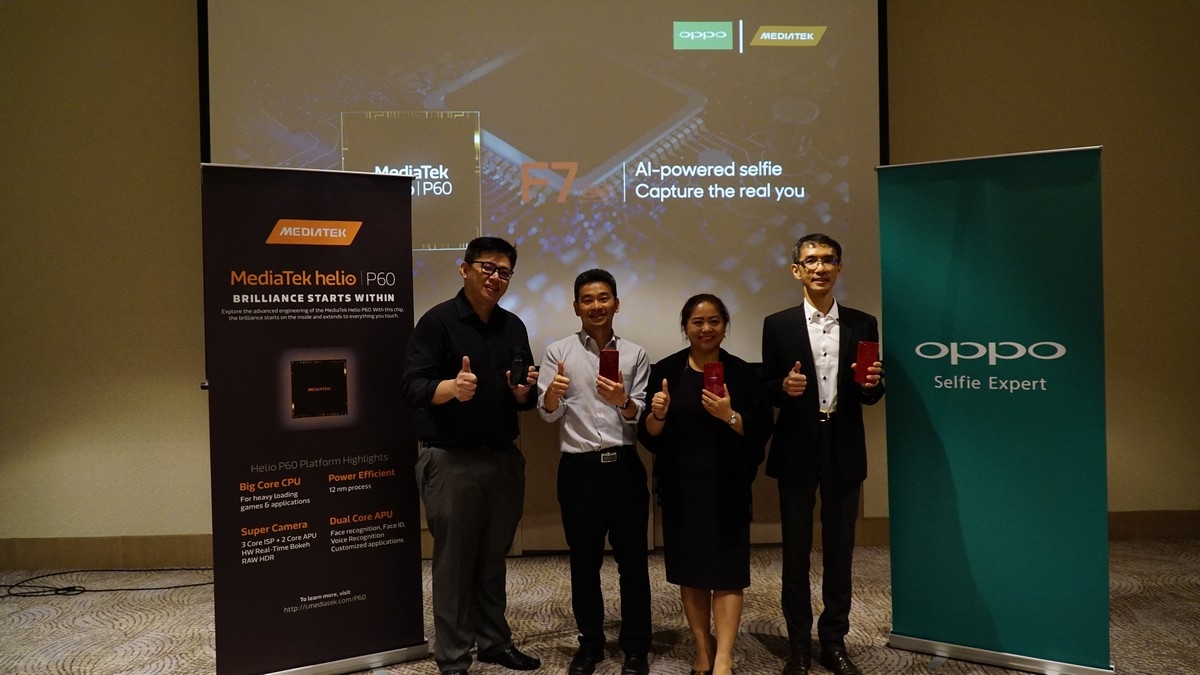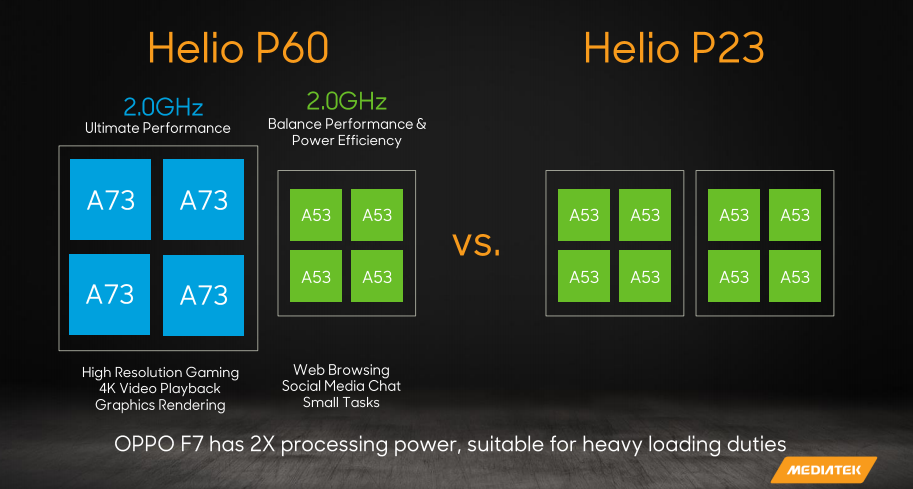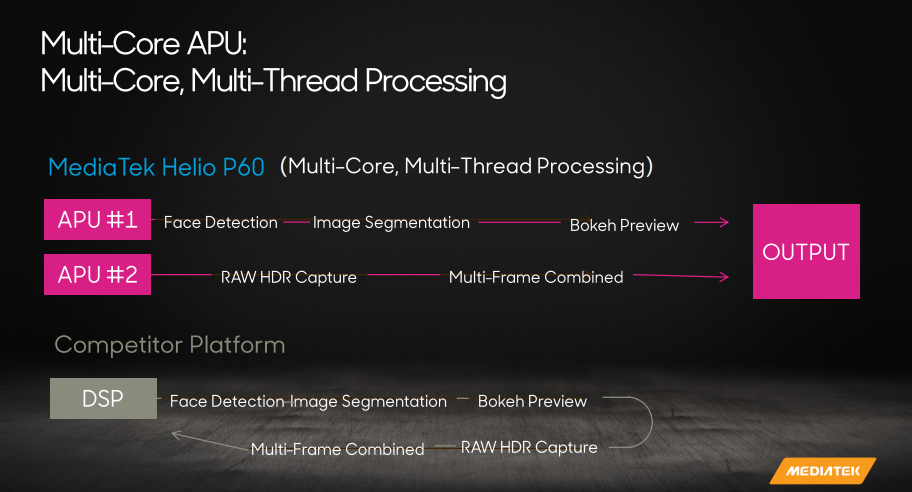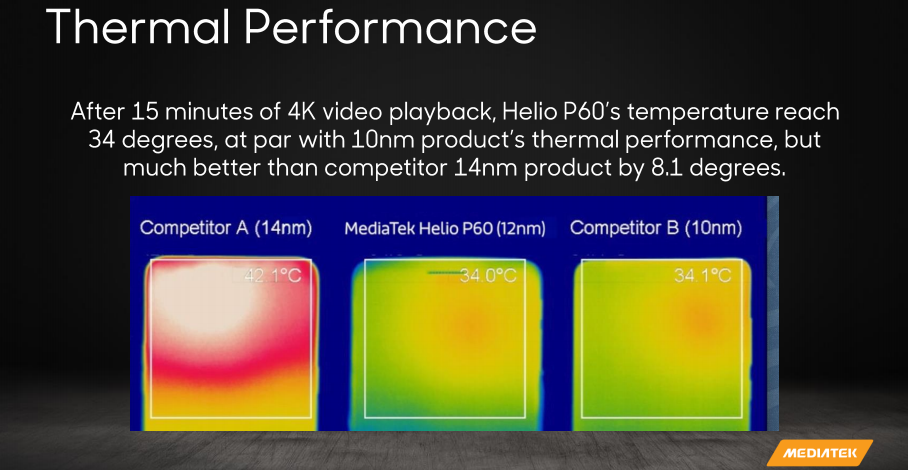MediaTek isn’t exactly the best SoC manufacturer in its early days in the smartphone business. Most people would quickly write off a smartphone’s performance once they see that they have a MediaTek SoC inside. This days, however, MediaTek has made a name for itself by providing more than reasonable performance to affordable mid-range smartphones.

With the release of the OPPO F7, MediaTek also introduced their Helio P60 chipset to a wider range of users. The Helio P60 is a significant upgrade to the brand’s previous mid-range SoC, the 16nm Helio P23. With help from its smaller 12nm lithography, Mediatek was able to fit in more features in the Helio P60 such as an upgraded GPU, 3x ISP structure, support for 20:9 FHD+ displays, and the hot topic for this year, AI.

As far as the obvious goes, the Helio P60 has improved sheer performance by giving the Helio P60 four “larger” cores in the form of four A73 cores with 1MB of L2 cache that clocks up to 2.0GHz. To preserve battery, however, MediaTek has kept four A53 processors for its little cores for decent performance and power efficiency for less intensive tasks. This allows the SoC to go toe-to-toe against other top-performing mid-range SoCs in the market.

MediaTek dumps all the AI work to its dual-core AI processing unit. This AI processing unit, or APU as the brand likes to call it, handles almost all the AI features on the OPPO F7 such as AI Face Recognition, HDR, and real-time bokeh. All AI-intensive tasks are automatically dumped on the two APU cores. Depending on the task, the APU can perform 46% faster compared to the CPU.
OPPO has heavily invested in MediaTek’s AI processing capability and have further improved the formula. With OPPO’s optimization, the Helio P60 can detect and identify objects in real-time for as fast as 30ms.

MediaTek has also kept the reins on the Helio P60’s temperature. In their internal tests of running 15 minutes of 4K video playback, the SoC was able to keep its cool with its internal temperature only reaching up to 34°C compared to the 42.1°C of the 14nm offering of its competitor.
MediaTek might not be the best semiconductor company in its early years but with the Helio P60, they have proved that they have the chops to go against the best SoCs in the market. With better SoCs like the Helio P70 on the horizon, we can’t wait to see what performance in the smartphone world they will bring in the future.
